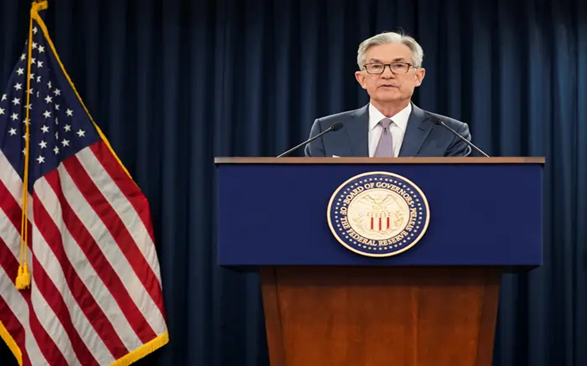by Jude Ayua
During a recent press conference, US Federal Reserve Chair Jerome Powell affirmed that banks may serve cryptocurrency clients, provided they understand and manage the associated risks effectively. Powell stressed that while banks are permitted to engage with crypto customers, they must exercise caution and implement adequate risk management measures.
Powell noted that the regulatory threshold for banks entering the crypto space remains high, hence, the need for caution when dealing with new asset classes like cryptocurrencies. He also clarified that the Federal Reserve will continue to supervise banks’ interactions with crypto businesses but without directly regulating cryptocurrencies themselves.
This cautious yet open stance from the Federal Reserve is a major shift from its earlier stance on cryptocurrencies’ integration with the traditional financial sector.
Powell’s statement coincides with the Federal Reserve’s decision to maintain its benchmark interest rate at 4.25 percent to 4.5 percent, following three consecutive rate cuts in late 2024. In a related development, the US Securities and Exchange Commission (SEC) also recently revoked the SEC’s Staff Accounting Bulletin 121, which prevented banks from offering crypto custody services.
Read also: Trump establishes President‘s Working Group on Digital Asset Markets.
The Fed’s earlier stance
In February 2023, the Federal Reserve issued a rule interpreting Section 9(13) of the Federal Reserve Act, as “presumptively prohibiting” banks from holding cryptocurrency assets. Banks were required to obtain formal approval to use US Dollar tokens and demonstrate secure practices to gain regulatory consent for stablecoin usage.
The Federal Reserve justified these restrictions citing risks of fraud, market volatility, and legal uncertainties. The Fed further asserted that digital assets lack[ed] intrinsic value and pose security challenges. Nonetheless, Federal Reserve Governor Christopher J. Waller cautioned against stifling innovation, remarking in a 2023 speech: “We should not unduly limit the development and potential future uses of the positive features of the crypto ecosystem.”
“Banks are ready…” – Bank of America CEO
During the 2025 World Economic Forum in Davos, Switzerland, Bank of America CEO Brian Moynihan expressed the US banking sector was ready to adopt cryptocurrencies for payment if regulators permit it.
In an interview with CNBC’s Andrew Ross Sorkin, Moynihan emphasized that clear regulatory guidelines would encourage the US banking sector to embrace crypto transactions. “If the rules come in and make it a real thing that you can actually do business with, you’ll find that the banking system will come in hard on the transactional side of it,” he stated.
Sorkin likened cryptocurrency payments to existing methods, saying, “If you can pay with Visa, Mastercard, a debit card, Apple Pay, etc., this would just be another form of payment.” He spotlighted Bank of America’s preparation for entry into the field, citing the bank’s extensive blockchain patents.
With President Donald Trump’s pro-crypto policies, particularly, including the Federal Reserve as a member of the Presidential Working Group on Digital Assets, there is a potential for the integration of digital assets into the traditional banking sector.
Read also: US banking sector ready to adopt crypto if regulators permit it—Bank of America CEO
Jude Ayua is a policy analyst at CAB. A lawyer, Jude is an associate at Infusion Lawyers where he is a member of the Blockchain & Virtual Assets Group. He is also a member of the Policy & Regulations Committee of the Stakeholders in Blockchain Technology Association of Nigeria (SiBAN). Jude reports and writes on crypto policy and regulations. jude@infusionlawyers.com
Discover more from Crypto Asset Buyer
Subscribe to get the latest posts sent to your email.





